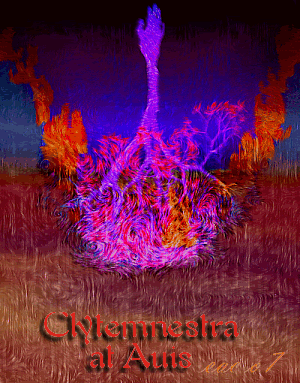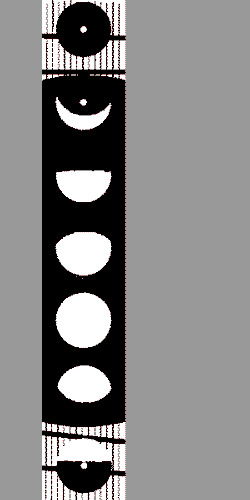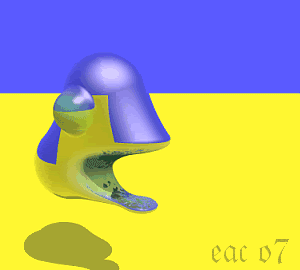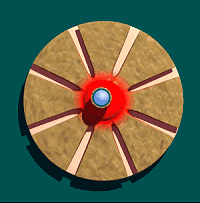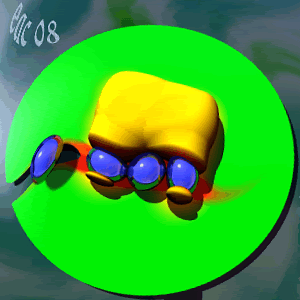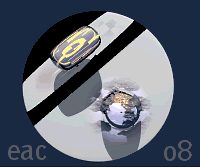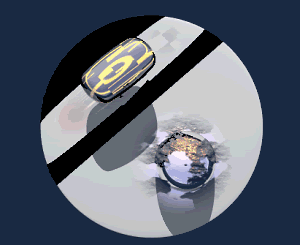 William Empson: Chapter NineWilliam Empson
William Empson: Chapter NineWilliam Empson begins an essay titled, "Honest Man", which stands as Chapter Nine of his
Structure Of Complex Words, so:
The Highlanders raised cries of "honest man", in Boswell's Tour To The Western Isle, after a farmer's wife had sat on Dr. Johnson's knee. "But what", as Boswell very sensibly asks, "could he have done?". There would have been another puzzle for the biographer if he had tried to explain the word. The cry is both patronizing and cordial, even both mocking and respectful; the farmers meant that he had seemed frankly pleased, therefore a good fellow, but also virtuous, therefore both worthy and absurd. At least that is what I should have thought it meant, but Boswell insists very firmly that this was a "Scottish phrase" and merely "an expression of kindness and regard". He ought to have known, but then he was also concerned to pass things off adequately smoothly. No doubt it is a plausible view that the Scotch had stuck to the older use of the word. One feels it would have been clear enough on the spot; but the text leaves it very doubtful....
Empson is difficult for those who do not go slowly, or go without depth, experience and subtilty of eye and ear.
For someone who is not British the mode may be mystifying, and even so for a Britisher with no interest or sensibility in his own language.
"
[I]t would have been clear enough on the spot" indeed. But Boswell himself seems to make a mess of it, exactly because he suggests that there might be misunderstanding of what happened on the spot, and that misunderstanding actually the result of what he had reported in regard to what was said.
Empson clearly understands both the spot and the possibility of misunderstanding, but his main interest is the phrase itself.
The not so obvious conclusion, which might take many readings to see even for the very sensitive, is that Boswell not only reported but also sought to exculpate Johnson of anything "dishonest".
That leads by another path to what Empson is intent upon ultimately--what was "honest" about having another man's wife sit on Johnson's knee, and about Johnson enjoying it, which Boswell hastens to explain as--what else could he do?
But explaining the Scottish usage complicates the matter more intricately, and with a suggestion of the ribald. What did the Highlanders mean by a shout of "honest man" under the circumstances, and is Boswell misleading the reader to protect Johnson or to implicate his physiology, and with Scottish flair?
Empson is not close-mouthed or enigmatic on the subject in the sense that his own suggestive style opens up the possibilities exactly to one who does look closely and deeply, whether or not such a reader is familiar with a learned and sensitive Englishman's--indeed a poet's--tonal range and openness of reference.
To all the rest, the passage--and Empson-- will likely fall on deaf ears.
Empson himself, having titillated with his beginning, then goes off in his own primarily historical direction:
Uses of this kind, very complicated but somehow obvious within their own group of speakers, seem interesting in themselves and likely to bear on questions of linguistic theory. I cannot attempt to explore all the paths that lead from this point, for example, to explain what is considered honest in big business, or why it is only in English that this romance word has come to mean telling the truth....Chaucer is certainly pertinent, which Empson immediately takes up. On the other hand, what Empson himself may not have known in detail--in this case classics and ancient Latin texts--helps even an American get the gist, and without cleaving to his own meaning of "honest", whatever it may be, thus getting to the heart of what Empson is about.
So one might mention as another dimension and just for example,
Ammianus Marcellinus describing himself as an "honest arrival" (honestus advena) among the bluebloods of the Roman Senatorial aristocracy.
Is Ammianus using "honestus" in any sense that might easily be reconciled with what an American, more than a millennium and a half later, and using his own version of English, might mean when he hears or reads or voices, say, the phrase, "He made an honest woman out of her"?
Even most Americans, for whom the phrase itself is now a bit old-fashioned, might not grasp that sense of "honest" on their own tongue, nor be able to distinguish it from "
honest Injun" or "
honest to God!".
[copyright EAC]







